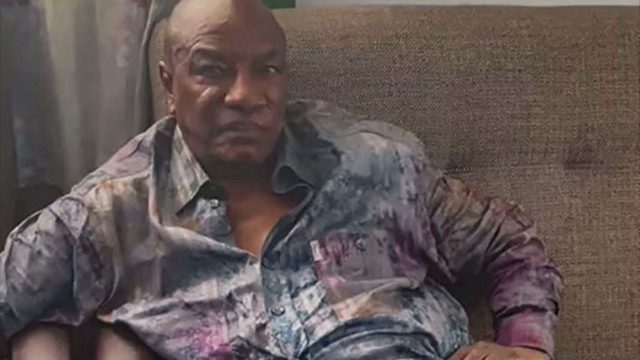West Africa Media Lawyers Association (WAMELA) has called on Nigerians and governments of the Economic Community of West African States (ECOWAS) to take necessary steps to resist the renegade military leaders in Guinea.
The body, while condemning the coup, stated that the coup leader should be made to understand that military coups are totally unacceptable, especially in West Africa irrespective of the unpopularity of the sitting government.
In a statement by the International President of WAMELA, Noah Ajare, the body noted that Article 1 (b) – (e) of the (ECOWAS) Protocol A/SP1/12/01 on Democracy and Good Governance Supplementary to the Protocol Relating to the Mechanism for Conflict Prevention, Management, Resolution, Peacekeeping, and Security, states that every accession to power must be made through free, fair, and transparent elections and zero tolerance for power obtained or maintained by unconstitutional means.
A screengrab taken from footage sent to AFP by a military source on September 5, 2021 shows the President of Guinea Conakry Alpha Conde after he was captured by army putschists during a coup d'etat in Conakry on September 5, 2021. - Turmoil engulfed the impoverished west African nation of Guinea again on September 5, 2021 as army putschists said they had captured the president and staged a coup, and the government insisted it has repelled the attack. "We have decided, after having taken the president, to dissolve the constitution," said a uniformed officer flanked by soldiers toting assault rifles in a video sent to AFP. (Photo by - / MILITARY SOURCE / AFP)
Their words: “Although the Constitution of Guinea was amended in most irregular circumstance to accommodate the third term of President Alpha Conde until the constitution is set aside, it remains the groundnorm. “We make it clear that the disgruntled Guinean military leaders who are behind the recent coup that will be held accountable and punished under the present international criminal court regime for such egregious violations of the human rights of the Guinean people and that of President Conde if ever such occurred during this misadventure of theirs against democracy.”
WAMELA, therefore, called for a serious, concerted resistance by the international community to the coup to serve as a strong deterrence to all other armed forces, particularly in West Africa who may be tempted to consider seizing political power by any unconstitutional means because of the prevailing economic and security challenges facing the region.
Meanwhile, Lieutenant-colonel Mamady Doumbouya, the high-ranking officer behind Guinea’s military coup promised yesterday to set up a unity government to oversee a transition period and vowed there would be no “witch hunt” against the former government.
“A consultation will be launched to set down broad parameters for the transition, and then a government of national union will be established to steer the transition,” Doumbouya said in a speech, but he did not say how long the consultation or the handover would last.
Seeking to reassure mining investors a day after the military seized power, Doumbouya added that the country would honour its business commitments.
A committee set up by the junta assures “economic and financial partners that activities in the country are continuing as normal,” Doumbouya said.
“The committee assures partners that it will respect all its undertakings,” he added.
The West African state of Guinea is uncertain about its future as the new military junta summoned the outgoing cabinet following the toppling of the president.
Impoverished and volatile, the West African state was hit by fresh turmoil when special forces arrested 83-year-old President Alpha Conde and declared they were scrapping the constitution, they also imposed a curfew.
Land borders have been shut. The government dissolved and top governors and other senior administrators have been replaced by the military, the junta said.
The end of Conde’s regime triggered jubilation in some parts of Conakry, especially in pro-opposition districts.
Discontent had been growing for months over a flatlining COVID-hit economy and the leadership of Conde, who became Guinea’s first democratically elected president in 2010.
Five years later, he was re-elected but in 2020 he sparked fury after ramming through changes to the constitution enabling him to sidestep a two-term limit.
Doumbouya appeared on public television on Sunday draped in the national flag, accusing the government of “endemic corruption” and “trampling of citizens’ rights”.
“We are no longer going to entrust politics to one man, we are going to entrust politics to the people,” the coup leader said.
“Guinea is beautiful. We don’t need to rape Guinea anymore, we just need to make love to her.”
He promised to launch a national consultation to open an inclusive and calm transition.
An umbrella group called the FNDC, which led protests against Conde’s constitutional changes, said imprisoned members would be freed.

